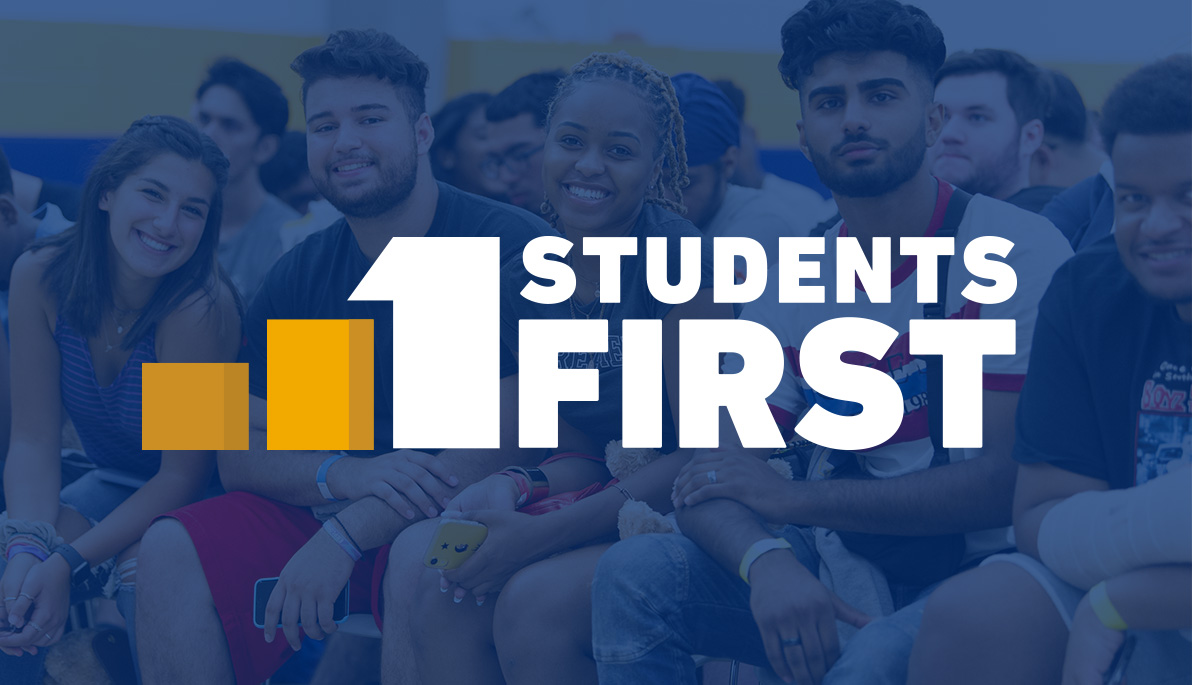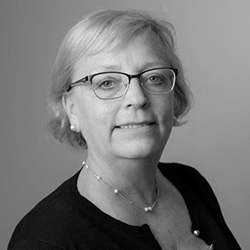News
Students First: Health, Wellness & Reacclimating to Campus Post-COVID-19
August 31, 2021
During the fourth and final installment of the 2021 Students First: Community Conversations series on August 26, New York Tech Chief Medical Officer Brian Harper, M.D., M.P.H., and Director of Counseling and Wellness Michael Schneider provided information on critical health and wellness resources and guidelines for students returning to campus in the fall. Undergraduate student Brendan Smoller interviewed both experts about the current COVID-19 situation and campus resources available to students before moderating a live Q&A.
Harper opened the “Health, Wellness & Reacclimating to Campus Post-COVID-19” webinar with a snapshot of COVID-19 positivity rates in the region, noting an uptick—to about 4 percent in New York City and Long Island—since June, though greatly down from the height of the pandemic. “As such, we’ve seen a return to some of the community mitigation efforts, including wearing masks indoors,” noted Harper, who also referenced and provided additional details about New York Tech’s recent vaccine mandate.
Schneider addressed the mental health issues of anxiety, stress, depression, and isolation that many have struggled with throughout the pandemic. “We’ve now switched from how to deal with the pandemic to the stress of getting back to normal,” he said. “We’ve tweaked our original online ‘Bear Care’ information and resource package to keep up with the situation, which continues to be fluid.”
Throughout the webinar, Schneider stressed the importance of connecting with the many campus resources New York Tech offers. “Our students are lucky in that it is a small campus where we can all get to know each other. People may feel unsure or uneasy, but reach out to faculty and staff and tell them how you are feeling. They may be feeling the same way,” he noted. “Everyone needs social support structures. Get into study groups, try to get back to the relationships you had. Clubs and organizations are also great ways to get to meet people on campus—we need to get back as much as possible to being with people.”
Schneider also discussed the drop-in counseling services offered on campus that can help students with short-term issues and help coordinate longer-term treatment as needed. “There’s still a stigma to mental health issues,” he noted. “We want to encourage you to come see us when you are starting to feel something and not wait.”
Harper mentioned the myriad services offered by the Academic Health Care Center on the Long Island campus, including the behavioral health team offering clinical services and programming to students and faculty, as well as a long list of medical treatment and preventative care services. In addition to primary care, the center has specialists in neurology, sports medicine, cardiology, podiatry, physical therapy, pediatrics, and OMM (osteopathic care). “Because of the pandemic, we’ve also developed some telehealth options that we can offer students on the New York City campus,” he said.
Harper also addressed some myths and misunderstandings surrounding the COVID-19 vaccine. “For those who may be hesitant, it’s important to understand…that the best way to address a virus is through a vaccine.” He explained that with the COVID-19 vaccine, messenger RNA creates proteins/antibodies that fight the virus: “People were wary of it because the technology is new, but it has proven to be very effective and is now FDA approved.”
“If you want to protect yourself from dying or the likelihood of hospitalization, the vaccine is the way to go,” said Harper, encouraging all attendees to continue to be prudent, use common sense, and follow common mitigation policies to decrease risk as much as possible.
The Students First: Community Conversations series was developed to inform students about changes to be made at New York Tech during campus reopening and the support systems available to members of the New York Tech community.
View recordings of all four Students First: Community Conversations produced in the summer of 2021.





